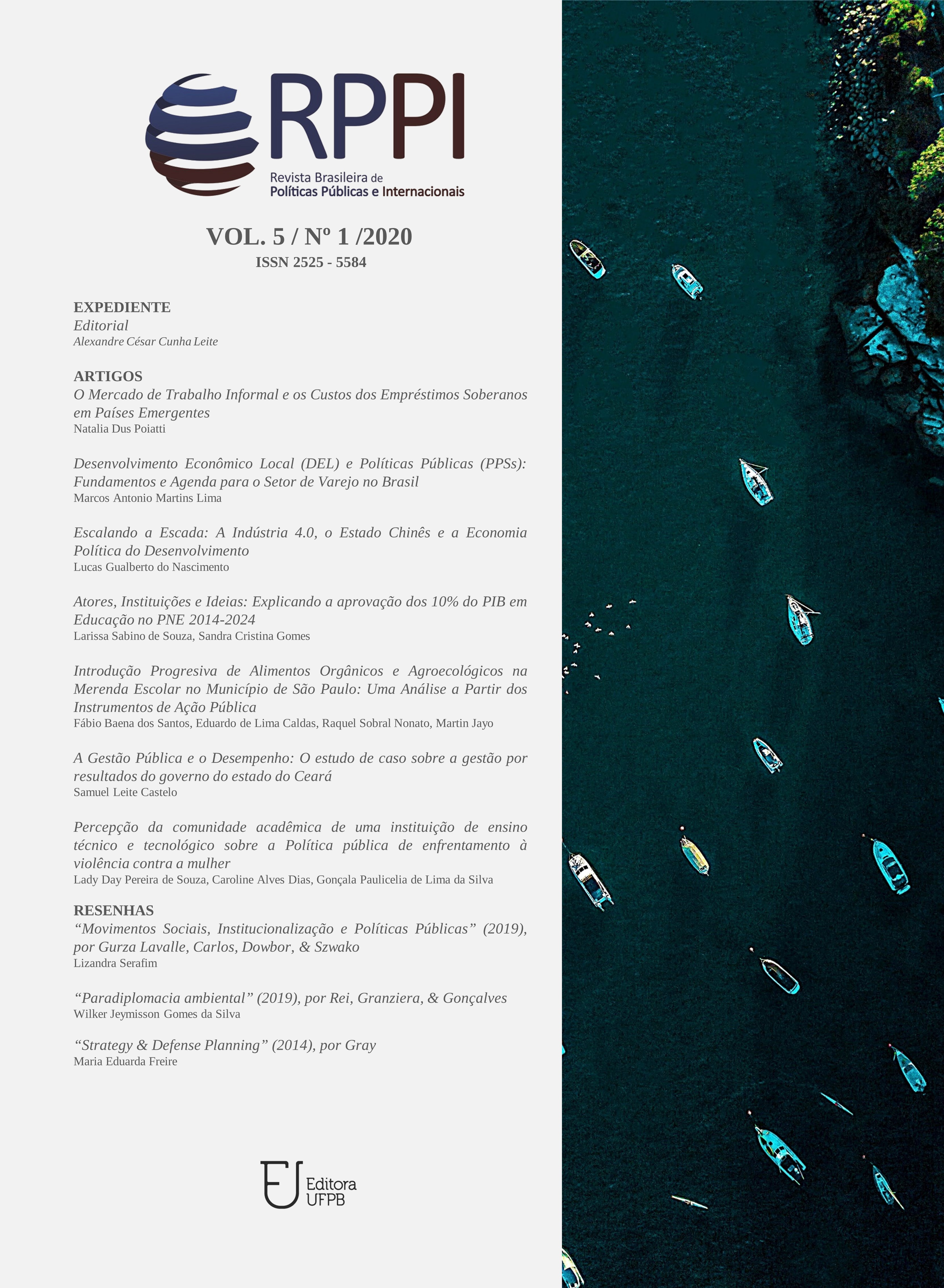The Informal Labor Market and The Costs of Sovereign Borrowing
DOI:
https://doi.org/10.22478/ufpb.2525-5584.2020v5n1.49501Abstract
The informal labor market or informal sector is responsible for an economically significant fraction of GDP production in emerging economies. Taking the informal sector to be all economic activity intentionally concealed from tax authorities to avoid tax payments, an increase in the sector adversely impacts the government ability to collect tax revenues and may increase the probability of sovereign default. In turn, higher probability of sovereign default makes borrowing in international financial markets more costly. However, the current macro-finance models do not properly account for the role of the informal sector in explaining sovereign default risk. In this paper, I estimate a vector autoregressive model measuring the causal relationships between sovereign spreads, a measure of default risk, and the size of the informal sector. The results indicate that the size of the informal sector is as important as formal output variations in explaining sovereign spreads. Therefore, policies designed by emerging economies to reduce the size of the informal labor market are important to decrease the costs of borrowing in international financial markets and increase the financing options for productive investment.
Downloads
Downloads
Published
Issue
Section
License
Autores que publicam nesta revista concordam com os seguintes termos:- Autores mantém os direitos autorais e concedem à revista o direito de primeira publicação, com o trabalho simultaneamente licenciado sob a Licença Creative Commons Attribution que permite o compartilhamento do trabalho com reconhecimento da autoria e publicação inicial nesta revista.
- Autores têm autorização para assumir contratos adicionais separadamente, para distribuição não-exclusiva da versão do trabalho publicada nesta revista (ex.: publicar em repositório institucional ou como capítulo de livro), com reconhecimento de autoria e publicação inicial nesta revista.
- Autores têm permissão e são estimulados a publicar e distribuir seu trabalho online (ex.: em repositórios institucionais ou na sua página pessoal) a qualquer ponto antes ou durante o processo editorial, já que isso pode gerar alterações produtivas, bem como aumentar o impacto e a citação do trabalho publicado (Veja O Efeito do Acesso Livre).




_.jpg)






.png)


.jpg)
_.png)
